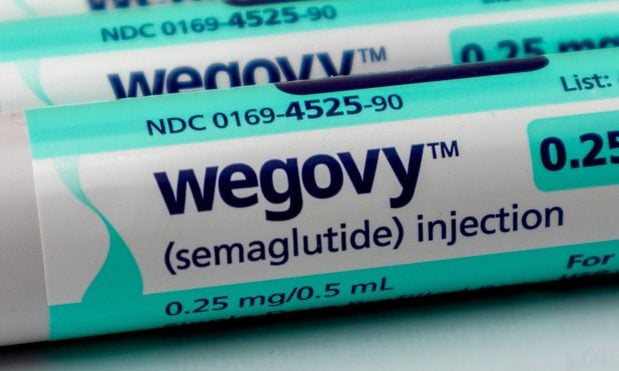I am one of 30 million Americans mulling over how much money I want to set aside next year for my flexible spending account. I won't go into details, but I've had my fair share of prescription fiascos and hours lost haggling with my insurance company.
Still, it's empowering to spend time calculating the pre-tax money I'll need for my medical expenses. I figure, if I have to stress about health, at least I know I'm saving some money.
However, as I look at my flex plan enrollment form, I can't help but feel like health reform pulled a fast one on us. And it was sneaky. No one will be crying foul when 80 percent of Americans don't even know what qualifies for FSA reimbursement this year. So unfortunately, it's not going to make much difference next year to yank out things they might buy on a somewhat regular basis (like antacids or antihistamines). If people don't realize they could have been saving money on these in the first place, they won't feel like they're missing out.
Recommended For You
Frankly, it boggles my mind that some of these things would even be classified as a non-eligible expense. The list of items you can't buy anymore using an FSA (without the required prescription) are things I buy before I break down and head for the doctor's office. I can't buy flu medication without a prescription, but I can save on acupuncture?
Sure, these common OTC items can be reimbursed. But it'll take some work. Just remember you need proof of a prescription for every time you want to buy some Claritin and want to claim it (but don't count on your flex debit card to pay for it, even if you do have a prescription). You'll have to purchase it up front and then submit the receipt, along with the proper documentation from your doctor. (I thought eliminating administrative waste was a goal of reform?)
In foresight, maybe my doctor and I should plan a yearly sit-down to go over everything I'll want to purchase over the next 12 months. Then again, I expect (and I don't think I'm alone) I won't want to bother with the hassle.
In all fairness, there's some rationale to the law. There's always the account holder who rushes to Costco at the end of the year to buy crates of aspirin so they can use up the rest of their FSA – which they just now realize they're about to lose. And most of that stored account money probably goes toward predictable costs anyway – things that people can plan for a year ahead. Plus, what's wrong with being just like the workers who don't have an FSA and have to buy their OTC meds the old-fashioned way, using after-tax money?
But while I see the practicality to reserve funds for expensive dental work, why not have the right to purchase an $8 bottle of cough syrup without the strings attached? Aren't we in enough of a crisis just to worry about how to pay for premiums let alone medicine? My own state of Colorado is facing a 14.4 percent increase in health insurance costs. It's the highest jump in six years.
So yes, I can probably let go of my OTC purchases in 2011. I doubt it would be so easy for others. It's hard to put a figure on just how much parents, for example, spend on cold medicine a year. And if they've been keeping track of costs like these through receipts, they know how much they won't be putting aside for their FSA next year.
Despite my gripe, I found myself persuading my sister-in-law (a soon-to-be mom) to consider setting up a tax-advantaged account for her family medical expenses. After all, I still believe in the FSA. It's worthwhile and there is so much still eligible for reimbursement – like travel, dependent care and medical costs that can add up even with co-pays. And for the record, that debit card will work next year for behind-the-counter prescriptions at your local pharmacy.
Forbes came out with a great article on FSA changes not too long ago. They've put out a partial list of 15 OTC drugs to buy now with FSA dollars, and 15 uses for FSA dollars still allowed in 2011.
In the future, if the government wants another way to pinch out more of our tax money, I'm hoping it won't be through easy loopholes like qualifying a medical expense.
To buy now:
- Acne medication
- Allergy and sinus relief
- Antacids
- Antibiotic ointments
- Cold sore remedies
- Cough, cold and flu medicines
- Eye drops
- Hemorrhoid preparations
- Insect anti-itch creams
- Laxatives
- Motion sickness remedies
- Pain relievers
- Sleep aids
- Anti-fungal spray
- Baby teething gel
Still allowed in 2011:
- Contact lenses and cleaning solutions
- Home medical equipment (asthma inhaler, crutches, ace bandages)
- Orthodontia
- Chiropractic services
- Co-insurance, co-pays and deductibles
- Dental work
- Lasik surgery
- Prescription glasses, sunglasses and reading glasses
- Hearing aids and batteries
- Infertility treatments/pregnancy test kits/contraceptives
- Insulin and diabetic supplies/blood sugar test kits
- First aid supplies
- Acupuncture
- Home renovation required by medical condition
- Special education required by medical diagnosis
© 2025 ALM Global, LLC, All Rights Reserved. Request academic re-use from www.copyright.com. All other uses, submit a request to [email protected]. For more information visit Asset & Logo Licensing.







